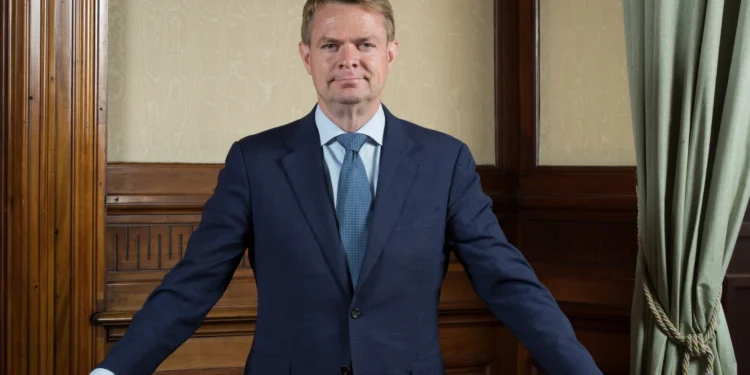Extractive Summary:
Brussels (Brussels Morning – March 21, 2018) Hendrik Bogaert, a prominent political figure, has made a fervent call for European intervention on behalf of what he terms “political prisoners.” Bogaert’s statement underscores his belief in the need for Europe to take action in cases where individuals are detained for their political beliefs or activities. His stance highlights the intersection of human rights and geopolitics, raising questions about the role of international bodies in safeguarding fundamental freedoms.
What Does Hendrik Bogaert’s Statement Reveal About His Stance on Political Prisoners?
Hendrik Bogaert’s recent statement calling for European intervention for what he describes as “political prisoners’ ‘ sheds light on his stance regarding human rights and political freedoms. As a prominent political figure, Bogaert’s statement underscores his commitment to defending individuals who are detained or persecuted for their political beliefs or activities.
In his own words, Bogaert stated, “They are political prisoners and Europe should intervene.” His unequivocal assertion reflects a belief in the importance of international solidarity and intervention in cases where human rights violations occur.
Bogaert’s statement raises questions about the role of European institutions and international bodies in protecting individuals’ rights to freedom of expression, assembly, and political participation. As debates continue about the balance between sovereignty and human rights, Bogaert’s stance serves as a reminder of the moral imperative to speak out against injustice and advocate for those who are unjustly detained or persecuted.
How Does Hendrik Bogaert’s Call for European Intervention Impact Geopolitical Dynamics?
Hendrik Bogaert’s call for European intervention on behalf of political prisoners has significant implications for geopolitical dynamics and international relations. By urging Europe to take action in cases of human rights violations, Bogaert’s statement underscores the importance of collective responsibility and solidarity among nations.
As a member of the European Union, Belgium, and other European countries play a crucial role in shaping European policy and action on human rights issues. Bogaert’s call for intervention highlights the need for European institutions to prioritize human rights concerns and engage in diplomatic efforts to address violations and promote accountability.
Moreover, Bogaert’s statement raises questions about the effectiveness of diplomatic pressure and international sanctions in influencing the behavior of authoritarian regimes. As Europe considers its response to human rights abuses, policymakers must weigh the potential impact of diplomatic interventions on geopolitical stability and regional dynamics.
In conclusion, Hendrik Bogaert’s call for European intervention on behalf of political prisoners underscores the intersection of human rights and geopolitics. As debates about the role of international institutions in safeguarding fundamental freedoms continue, Bogaert’s statement serves as a reminder of the importance of collective action and solidarity in addressing human rights violations around the world. As Europe considers its response to human rights abuses, Bogaert’s advocacy for political prisoners reflects a commitment to defending democracy, freedom, and justice on the global stage.




